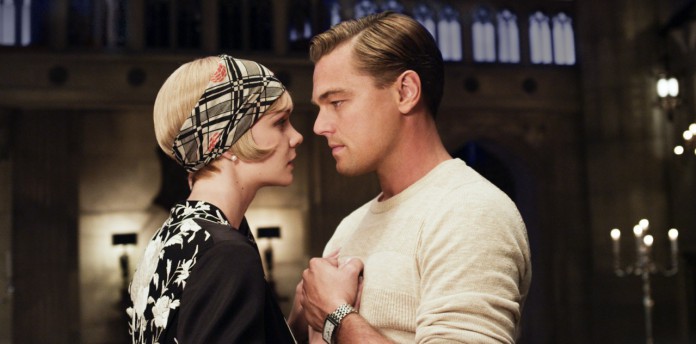Audrey Ronningen
Promotions Director
Even before Baz Luhrmann’s take on “The Great Gatsby” opened on May 10, skeptics feared that, like its predecessors, the film would fail to capture F. Scott Fitzgerald’s beautifully written, cynical account of the Jazz Age. I, too, wondered whether Luhrmann could meet Fitzgerald’s standards, only to realize that, in this film, exact imitation is impossible.
What this new version does have, however, is a mix of solid entertainment and definite flaws. Baz Luhrmann’s decadent, romantic style is suited to the opulent lifestyles portrayed in the novel, as well as its tragic love story. These successes are only two-thirds of Fitzgerald’s thematic formula, though, and the film overlooks his warning of disillusionment behind the American dream.
Part of what makes Fitzgerald’s novel a classic is the descriptive language, some of which is retained in an unexpected framing device. Many of the book’s best lines are from Nick Carraway’s inner observations, and voiceover restores some of their magic. Tobey Maguire is a good fit for this character, literature’s innocent third wheel who sees the wonderland of 1920s New York as a dream that is slightly too vibrant to be reality.
The film’s many party scenes are amazing to watch, and recreate the hedonistic era of bootlegging and flappers. Bold settings are one of Luhrmann’s strengths, and shortly into the film it becomes clear why he is known as a visually creative director.
The first booze-soaked celebration is where we first meet the eponymous anti-hero, played by Leonardo DiCaprio, who expertly portrays the character in all his charm, optimism, and masked insecurity. Nick, who lives next door to the self-made millionaire, eventually agrees to re-introduce him to his cousin Daisy (Carey Mulligan), with whom Gatsby has an unresolved past.
Daisy lives the unhappy life of a woman who resents her status as a trophy wife and hates her arrogant and entitled husband, Tom Buchanan, yet stays with him out of her own dependency on class norms. However, she takes a risk when she meets Gatsby again, and their affair turns into a plan to officially start over in his palace-like mansion.
Anyone who’s completed high school knows that this last half of the book is where things turn sour. Upon hearing the truth about the affair, Tom, played by Joel Edgerton, retorts that Gatsby made his fortune through bootlegging. The ensuing tragedy results from Daisy’s frantic state of mind, yet Gatsby takes the blame, destroying his life and proving how far he will go for someone who perhaps doesn’t deserve his loyalty.
The romance of the story is convincing, but Lurhmann’s focus on personal relationships pushes another of Fitzgerald’s themes to the side. “The Great Gatsby” is about flaws within high society, and how a lifestyle based on money will never be meaningful. Although Gatsby is arguably the most obsessed with his wealth, this is all to win back the materialistic Daisy, and DiCaprio’s skilled acting coveys this blind devotion. Instead, some of the blame falls on the film’s interpretation of its female lead. Mulligan is a fine actress, but here Daisy’s unhappiness only stems from her faulty marriage. The character is more jaded in the novel, and you get the sense that while she relies on wealth to form an identity, she also hates the shallowness of it.
Another reason “Gatsby” fails as a cautionary tale is a result of what is lost in translation. Fitzgerald’s messages about wealth and class are sometimes subtle, and can take form in his description of a character’s voice, or the words used to introduce a particular setting. This is better fitted for a novel, making adaptation a difficult feat in itself. On top of that, Luhrmann’s priorities seem to be with visuals and romance instead, which turns Fitzgerald’s conclusion into a secondary theme.
The best way to enjoy this “Gatsby” is to accept that it has a different focus than the original. If you try and compare it with Fitzgerald’s, this version will fall short in terms of depth; separately, though, it is an inventive romantic drama that merits its own recognition.
Photo courtesy of the Official Great Gatsby Website











